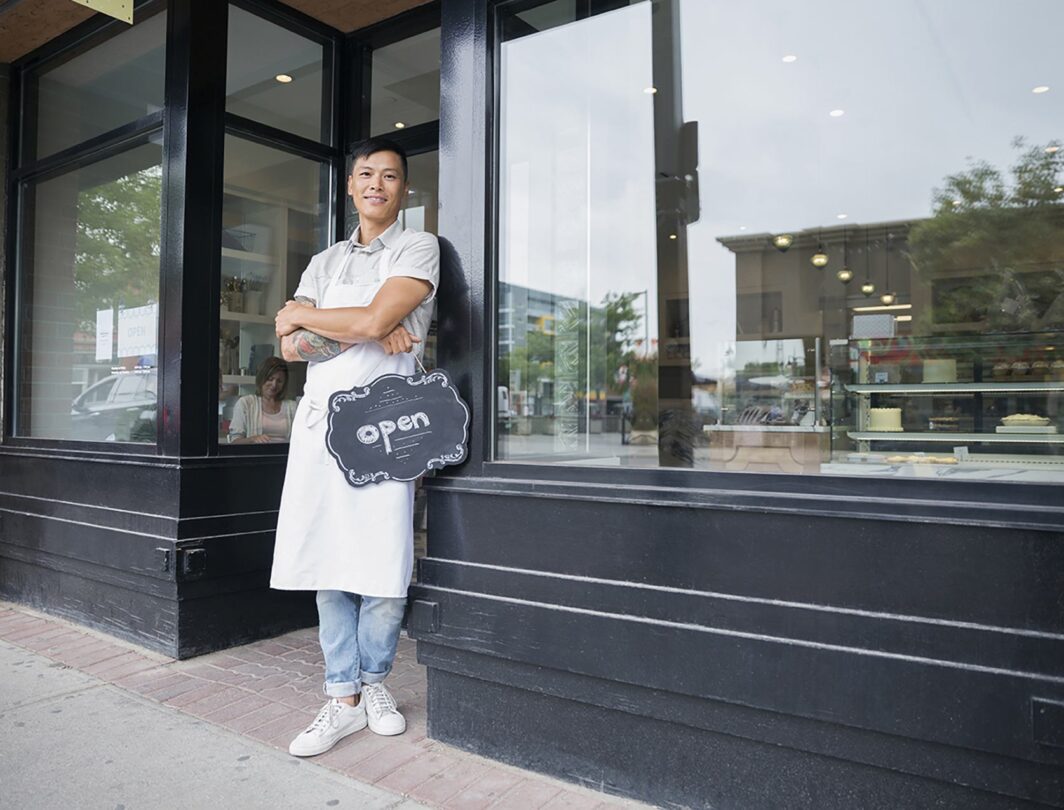Money Matters
3 ways small businesses can take on the retail giants and win

With the rise of retail giants such as Amazon and the power of the supermarkets, small businesses can and do often struggle to compete. The challenge to cut through the noise and generate footfall that converts into custom is a common one.
Small ecommerce businesses are given a slight advantage due to the added convenience factor for consumers. But for the most part, all small businesses face a constant uphill battle.
However, it isn’t all doom and gloom for small business owners.
In fact, according to a survey conducted by Vistaprint, nearly a quarter of millennial Brits (23%) planned to shop more with small businesses in 2019.
Alongside more frequent shopping in small businesses, millennials are also spending more: an average spend of £998.40 per year, compared to baby boomers spending an average of £710.88 per year.
So what can small businesses do to play to their strengths and capitalise on that shift? Read on for three ways that you can take on the retail giants and succeed.
Showcase your knowledge
If you’re a small business on the high street, it’s likely that you specialise in one specific trade or area of commerce. For example, you may be a wine merchant, a greengrocer, a butcher, a small music store or a picture framer.
As a specialist business, you are in possession of a wealth of knowledge that huge retailers can only dream of having on the frontline of their businesses. This is one of the biggest most effective tools in the arsenal of a small business.
This wealth of knowledge can make customers feel more secure in their purchase from you, and will ultimately be one of the key driving factors in improving your number of returning customers.
Alongside providing expertise and knowledge at the counter of your business, this can be extended and harnessed by providing advice and direction in the form of blogs and social media posts.
Constructing advice blogs, such as “How To” guides and “Top 10” lists for your relative industry will allow you to extend the personal and expert nature of your business to a wider audience.
Offer great customer service
When you combine knowledge and expertise with amazing customer service, you’re left with an incredible customer experience that has the highest chance of creating returning customers.
One of the top reasons why millennials prefer to shop with smaller businesses is because the shopping experience feels more personal to them.
This will in turn make them feel more like valued customers and that your business is genuinely appreciative of their custom.
If your small business doesn’t already have a focus on customer service, then that shift needs to come sooner rather than later.
Customers need to know that the extra expense usually associated with shopping with you can be justified by an overall better shopping experience, including customer service.
Take the time to really understand exactly what it is that the customer is looking for in your store and help them to find it. If they have questions and queries, answer them with optimism.
After all, customers are leaning on your experience to make the best decision for themselves.
Customer service should never be seen as a chore, especially in small businesses. A good customer experience can and will often be the deciding factor between a customer coming back for a second time.
Build strong relationships
Small, high-street businesses thrive off the community they are based in. After all, the people who live in the area in which your business is based are your target market.
That’s why it’s crucial you form strong interpersonal relationships with the people are regularly visiting your store.
Word of mouth is one of the strongest forms of marketing a small business can utilise, meaning you need to be giving your customers no reason to say anything negative as it can easily be as damaging as it is beneficial.
As previously mentioned, customers expect a higher quality of service and a better shopping experience when shopping locally because they are sacrificing the lower prices they could obtain at larger outlets.
So forming these interpersonal relationships with customers, regular or not, plays a vital part in the profitability of your business.
Make your customer’s shopping experience a social one.
Say hello when they walk in, with a smile and try to make conversation. However, if your customer isn’t being as responsive as you’d like then don’t force conversation upon them. This can make customers feel uncomfortable, and may ultimately result in a bad experience.
That quality of service should also include the point when they reach the till. Offering a variety of payment options, from Chip and Pin to Apple Pay and Google Pay, means you can make things really convenient for your customers.
And using a payment provider that offers a fast and secure service will give your customers confidence that you’re a retailer who can be trusted.
Although it’s important to build relationships with individual customers, it’s vital to establish and cultivate a reputation within the wider community as a whole.
Sponsoring local events or clubs can be a great way to garner recognition and a positive reputation. By supporting your local community, the people within it will likely return the favour.
Conclusion
Running a small business can be challenging and testing, however it’s also got the potential to be one of the most fulfilling ways to make a living.
By creating a personal customer experience, your small business can continue to power through and be a force to be reckoned with in the world of retail.







Ask the author a question or share your advice